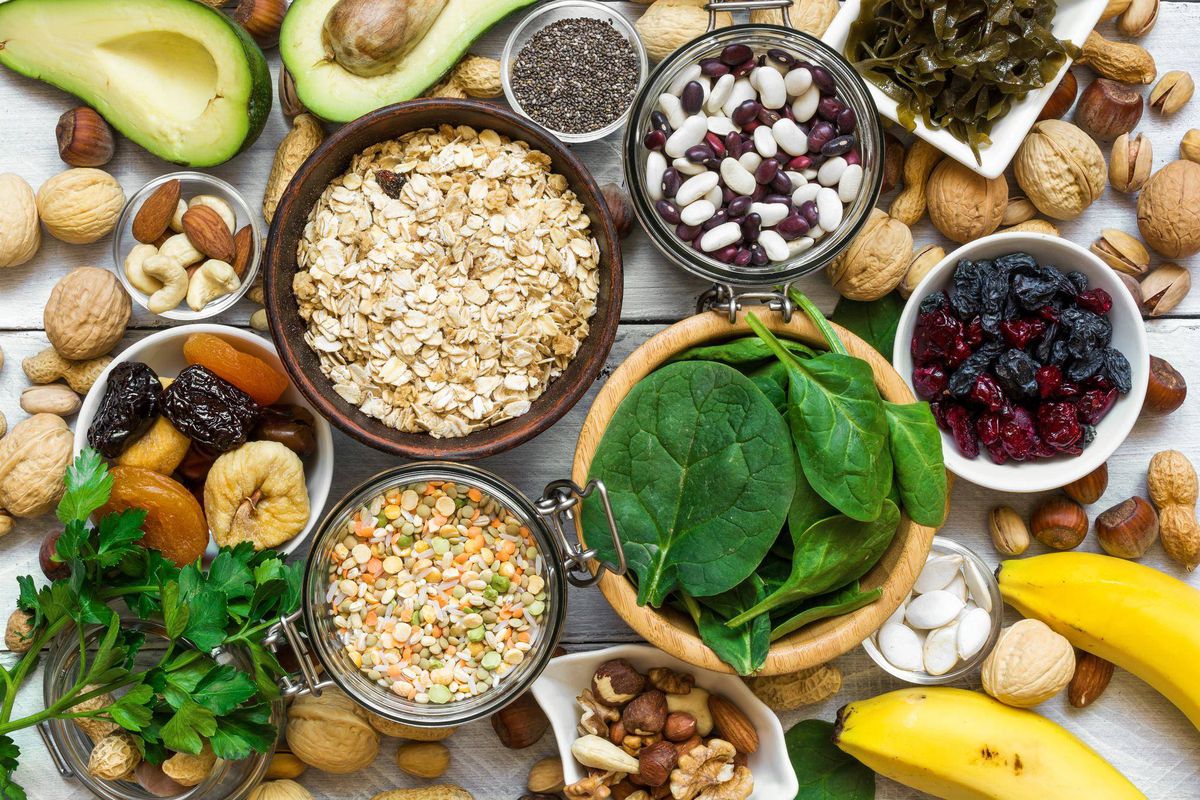If you don’t think much about magnesium, you should.
A higher intake of this under-consumed mineral, abundant in spinach, black beans and nuts, helps guard against high blood pressure, type 2 diabetes, heart disease and stroke.
Now, new evidence from the Australian National University suggests that significantly increasing your daily magnesium intake may reduce brain shrinkage as you age, which is linked to better cognitive performance and lower risk. of dementia.
Additionally, the brain-protective effects of magnesium may begin as early as midlife.
Here’s what to know about the new study, along with the best foods to boost your magnesium intake.
Aging, brain volume and white matter
As we age, we lose brain cells (cerebral atrophy) and our brain volume also decreases.
Over time, changes in brain structure and loss of brain volume can affect cognitive abilities, including memory and the ability to plan, communicate, and regulate movement and emotion.
White matter, made up of nerve fibers deep in the brain, provides connections between different areas of the brain. White matter damage occurs when brain cells are damaged or inflamed. As the brain ages, white matter damage increases and is associated with an increased risk of cognitive decline.
The conclusions of the study
The study, published last month in the European Journal of Nutrition, involved 6,001 cognitively healthy adults in the UK, aged 40 to 73.
Participants completed an online diet questionnaire five times over a 16-month period. The answers were used to calculate the daily intake of magnesium from food.
At the start of the study, participants underwent brain imaging to assess brain volume and white matter damage.
After controlling for other risk factors (age, gender, body mass index, education level, diabetes, smoking status, physical activity, alcohol consumption), higher dietary magnesium intake was strongly associated to higher brain volumes and lower white matter damage.
Compared to a person with a normal magnesium intake (350 mg/day), the researchers estimated that a person who consumed more of it (at least 550 mg/day) would have a brain that was one year younger when they would reach the age of 55.
Because the results were seen in middle-aged participants, they suggest that higher dietary magnesium intake may begin to slow brain aging in their 40s and possibly earlier.
The results also showed that higher magnesium intake was more beneficial for women than for men, especially postmenopausal women, possibly linked to changes in estrogen.
This isn’t the first study to link dietary magnesium to better cognitive health.
Research in middle-aged and older adults has linked high magnesium intakes to a lower risk of dementia. High dietary magnesium has also been associated with a lower risk of going from normal aging to mild cognitive impairment.
How Magnesium May Protect Brain Health
Higher magnesium intakes have been shown to lower high blood pressure, an established risk factor for dementia.
The current study, however, found no link between magnesium intake and blood pressure, suggesting that magnesium works in other ways to protect the brain.
Magnesium is known to reduce oxidative stress and inflammation in the brain, harmful processes thought to be major contributors to loss of brain cell structure and function and Alzheimer’s dementia.
A higher level of magnesium in the brain has also been found to improve how brain cells communicate with each other.
How much magnesium? What foods?
Adults need 310-320 mg (women) and 400-420 mg (men) of magnesium per day.
According to the 2015 Canadian Community Health Survey, more than half of adult men and women do not meet these recommended daily intakes.
Cooked spinach and Swiss chard are excellent sources of magnesium, each providing 160 mg per cup. Acorn squash and butternut squash contain 88 and 60 mg of magnesium per cup, respectively.
Legumes are also excellent sources of magnesium. For one cup: black beans (120 mg), navy beans (96 mg), pinto beans (86 mg), chickpeas (80 mg) and lentils (70 mg). Soybeans, edamame, and soymilk are also good sources.
Seeds and nuts are also rich in magnesium. A quarter cup of pumpkin seeds and sunflower seeds each contain 162 and 114 mg, respectively. Hemp seeds have 116 mg per two tablespoons. Chia seeds, almonds, cashews, and peanuts are other good sources.
Whole grains such as teff, quinoa, spelled berries, bulgur, whole wheat pasta, brown rice, oats, oat bran and bran cereals are also decent sources of minerals. The same goes for chinook salmon, Atlantic mackerel and halibut.
Unlike magnesium supplements, magnesium-rich whole foods also contain vitamins, other minerals, fiber, healthy fats, and phytochemicals—food components that are thought to work together to provide health benefits. health.
Leslie Beck, a dietitian in private practice in Toronto, is director of food and nutrition at Medcan. Follow her on Twitter @LeslieBeckRD

